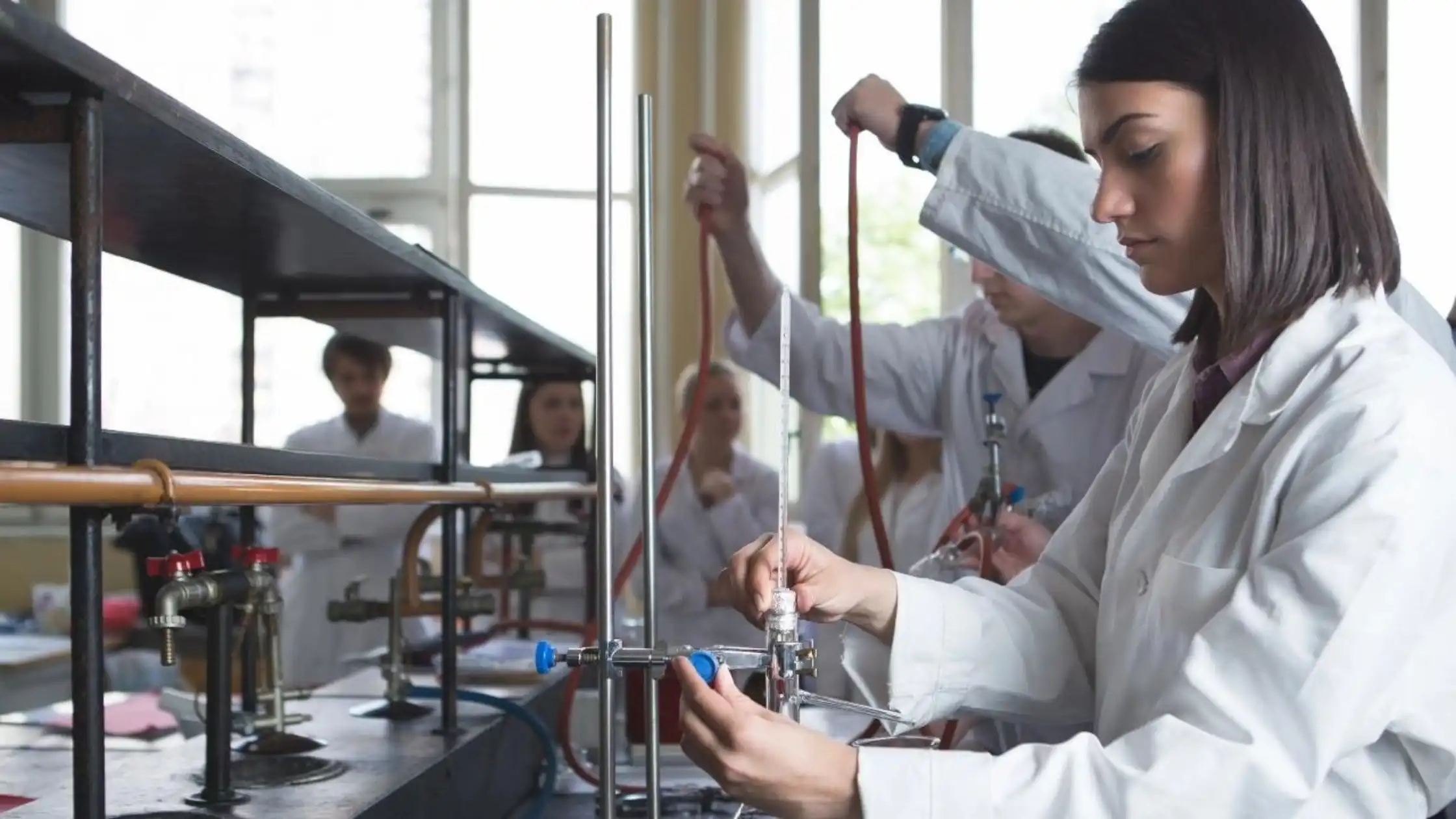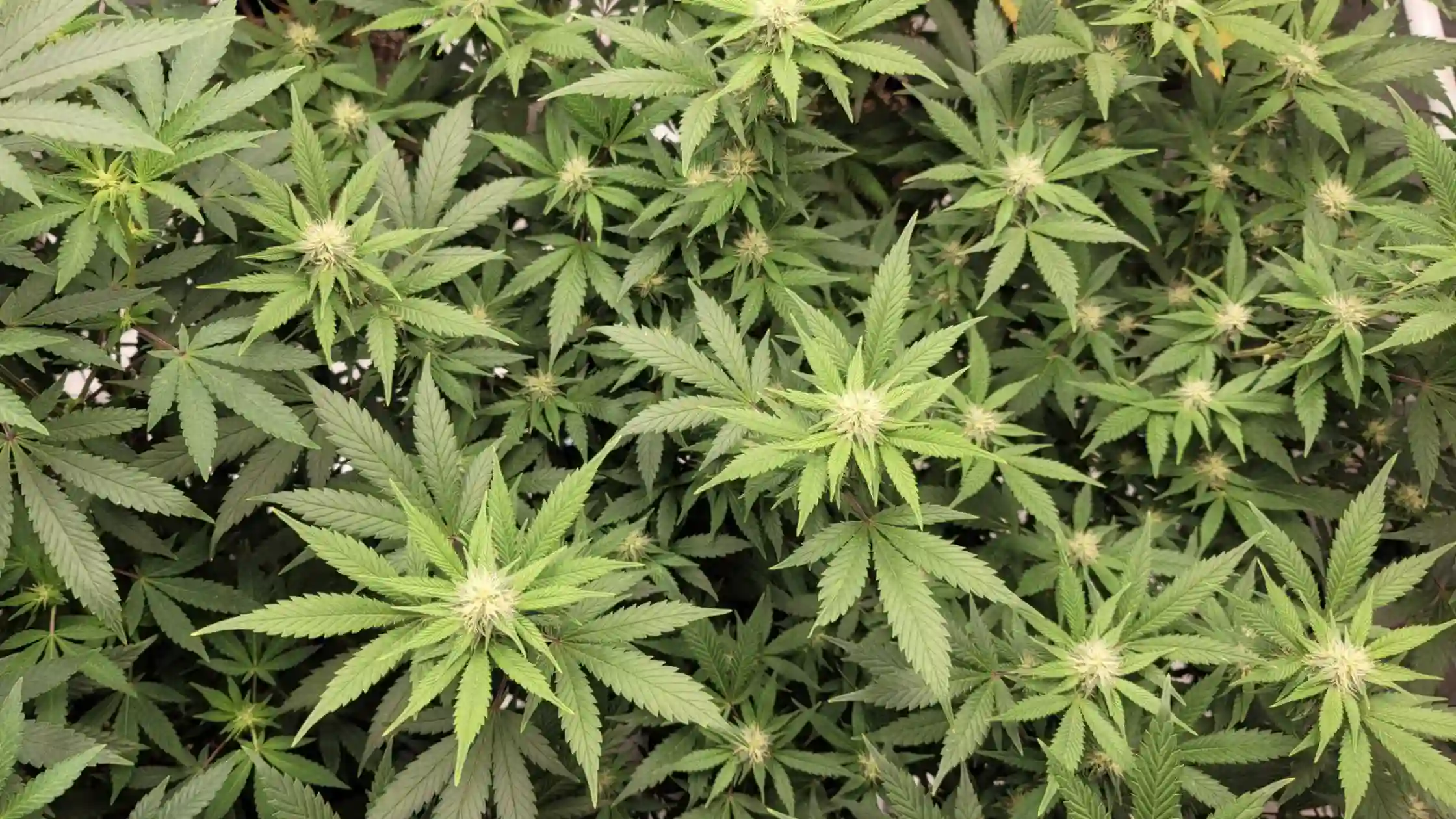As more states launch medical and adult-use marijuana markets, there’s an increasing need for trained professionals with knowledge specific to cannabis businesses.
Colleges and universities nationwide are stepping up to meet the demand for workers skilled in the cannabis industry, and they’re connecting their graduates with potential employers.
Marijuana companies, meanwhile, can turn to these institutions to fill their ranks.
The cannabis industry is expected to support between 425,000 and 520,000 full-time jobs in the United States this year, according to the MJBizFactbook.
That figure could soar as high as 670,000 by 2025.
“We have students in their late 20s or early 30s who have quit careers to come here,” said Steven Johnson, dean of the College of Science and the Environment at Lake Superior State University in Sault Ste. Marie, Michigan.
“We have some RNs (registered nurses) who hung it up and moved across the country to come here.
“Compliance has very high-paying jobs,” he said. “And if you have a bachelor’s degree, you can make more than a starting faculty member with a Ph.D.”
Below is a sampling of some of the cannabis-related classes and degree programs available from universities across the country:
Colorado State University-Pueblo
Pueblo, Colorado
Degree offered: Bachelor of Science in cannabis biology and chemistry
Tuition: $366.47 per credit (resident); $549.70 (non-resident)
Number of students enrolled: 58
Website: csupueblo.edu/cannabis-biology-and-chemistry-bs/index.html
Colorado State University-Pueblo began offering its cannabis biology and chemistry major in the fall of 2020, so it has not yet had any students graduate from the program.
When the department awards its first cannabis diplomas in 2024, graduates will be qualified to work in a biology or chemistry laboratory – both in the marijuana industry or for a mainstream company.
“We are currently engaging the industrial hemp industry in developing internships and potential research projects, which will also give students an advantage in procuring employment after graduation,” said David Lehmpuhl, dean of the College of Science, Technology, Engineering and Mathematics at CSU-Pueblo.
Students learn about cannabis physiology as well as pharmaceutical implications and the practical applications for the plant.
They can specialize in one of two emphasis areas – analytical and natural products – preparing students to work in a lab setting or pursue graduate degrees in biology or chemistry.
The university hosts the Institute of Cannabis Research conference each year and sponsors the Journal of Cannabis Research.
Lake Superior State University
Sault Ste. Marie, Michigan
Degree offered: Associate degree in cannabis science/Bachelor of Science in cannabis chemistry
Tuition: $4,308 flat rate per semester; $359 per credit hour (winter 2021 and summer 2022)
Number of students enrolled: 99
Website: lssu.edu/college-science-environment/school-science-medicine/cannabis-chemistry/
Cannabis businesses looking for chemistry graduates with hands-on experience will find them at Lake Superior State University. The university offers courses such as Cannabis Chemistry, Medicinal Chemistry, and Cannabis Separations as part of its career-focused education.
Students learn cannabis extraction and separation techniques and build a knowledge base to analyze marijuana-related compounds and contaminants.
Graduates with a degree in cannabis chemistry spend more than 600 hours in instrumentation laboratories learning industry-standard procedures.
Nearly 100% of Lake Superior students are either admitted to graduate school or placed in jobs within one year of graduation, according to the university.
University of Nevada, Reno
Reno, Nevada
Degree offered: Certificate in cannabis education
Tuition: $2,950 for a six-month online program
Number of students enrolled: 20 in the first cohort
Website: cannabiseducation.unr.edu
Notable cannabis companies such as Cookies and Jushi Holdings are part of the Green Flower Network, which the University of Nevada, Reno, participates in because the school produces potential employees from its six-month certificate program.
Courses range from health care and medicine to marijuana law and policy, as well as cannabis agriculture and horticulture.
Students develop a portfolio of case studies and projects they can use to demonstrate sector-specific cannabis knowledge.
The program prepares students for compliance, cultivation, distribution and retail careers.
Northern Michigan University
Marquette, Michigan
Degree offered: Bachelor of Science in medicinal plant chemistry
Tuition: $6,049 per semester or $473 per credit (resident); $8,797 per semester or $702 per credit (non-resident)
Number of students enrolled: 287 in medicinal plant chemistry; 60 in indoor agriculture
Website: nmu.edu/chemistry/medicinal-plant-chemistry
Although federal regulations limit the university’s ability to connect students directly with cannabis businesses, Northern Michigan works diligently to prepare them for the job-search process, said Derek Hall, the university’s chief marketing officer.
Graduates will be qualified to perform instrumental analysis in a laboratory or build their testing lab, retail store or growing operations.
The required coursework gives students a foundation in chemistry and plant biology, as well as research on horticulture and instrumental analysis of natural products.
There are two focus paths: The entrepreneurial track allows students to explore opportunities in business and accounting; the bioanalytical track covers advanced topics in chemistry and biology.
Oaksterdam University
Oakland, California
Degree offered: Certificates in extraction and manufacturing, bud tending, business and horticulture.
Tuition: Click on the links for the curriculum pricing that interests you – budtending, extraction and manufacturing, business of cannabis and horticulture.
Number of students enrolled: 35 in live virtual semester cohorts (two running at any given time)
Website: oaksterdamuniversity.com
Founded in 2007, Oaksterdam University was the first cannabis college in the United States.
The school says it has more than 50,000 alums worldwide.
“We are focused on diversity, equity, and inclusion, and we have fought to have the very laws that allow convicted and formerly incarcerated people to participate in the legal industry,” Executive Chancellor Dale Sky Jones said.
Oaksterdam’s curriculum covers every aspect of the industry, from cultivation and manufacturing to business and public policy.
The certificate programs allow students to work on projects based on real-life scenarios that prepare them for careers in the cannabis industry.
Oaksterdam also provides students and alumni with access to its cannabis industry job board and networking opportunities, including company tours, professional faculty who work in the industry, and at least five hours of mentorship per week in cultivation and business.
University of Rhode Island
Kingston, Rhode Island
Degree offered: Online certificate in cannabis studies
Tuition: $552 per credit (additional fees apply)
Number of students enrolled: 30 per cohort
Website: web.uri.edu/online/programs/certificate/certificate-in-cannabis-studies
People already working in the cannabis industry can boost their skills through the University of Rhode Island’s online certificate program.
Seven-week modules provide students with a foundation in cannabis studies and help develop core competencies in natural product separation and analysis, safe product development and manufacturing, and evaluation of cannabis’s therapeutic potential.
“Our program fosters a very active learning community where the students interact and network weekly with each other,” said Stephanie Forschner-Dancause, a Department of Biomedical and Pharmaceutical Sciences lecturer.
“It is through these interactions that job opportunities are shared.”
The classes are taught by faculty and experts in medicinal plants, functional foods research, natural product chemistry, biosynthesis, microbiology and formulation research and development in the pharmaceutical and nutraceutical industry.
The four three-credit classes can be completed in as little as two semesters.
State University of New York (SUNY) at Morrisville
Morrisville, New York
Degree offered: Minor in cannabis studies
Tuition: $7,070 per year for four-year degree (resident); $16,980 (non-resident)
Number of students enrolled: 30
Website: morrisville.edu/cannabis
Executives in the cannabis industry get to know SUNY Morrisville students through the school’s networking opportunities.
The university invites industry leaders, such as New York Cannabis Control Board member Jen Metzger and executives from Silicon Valley-based life sciences and diagnostics company Agilent Technologies, to speak to classes.
“Another way we have been building a network of industry contacts is via our program graduates, who have been spreading out into a wide range of cannabis industries – both local and nationwide,” said Kelly Hennigan, an associate professor at the university.
Alums of the program have gone on to work at Acreage Holdings, CNY Hemp Processing, Curaleaf Holdings, Eaton Hemp, MedMen Enterprises and Verilife.
Morrisville’s minor in cannabis studies combines agricultural science, horticulture, and business to provide students with an understanding of the marijuana industry.
The program allows students to focus on specific areas of interest, including cannabis botany, production and processing techniques, and marketing.
Cultivation classes are taught year-round at Morrisville’s Four Seasons Farm and Controlled Environment Agriculture Greenhouse, which features various hydroponic systems.
Low-THC hemp is used to study cultivation techniques. The university’s Horticulture Center also offers amenities such as tissue-culture labs and grow rooms.
Stockton University
Galloway, New Jersey
Degree offered: Minor in cannabis studies
Tuition: $6,245 per semester (resident); $10,036 (non-resident)
Number of students enrolled: 100-plus
Website: stockton.edu/general-studies/cannabis-studies.html
Students with a cannabis studies minor can major in business and finance, hospitality and tourism management, health sciences, criminal justice, communications, social work, biology or environmental science.
“We work with partners in multiple industries to place the students according to their interests,” said Diane D’Amico, the university’s news and media relations director.
“A major asset of the (cannabis studies) minor at Stockton is that students from all majors can apply it to their field of interest.”
Other courses Stockton requires for students with a minor in cannabis studies include Introduction to Medical Marijuana, Cannabis Law and Internship Preparation.
The latter covers cannabis research and gives students a basic understanding of small-business operations with opportunities for experiential learning.
Students can choose from elective courses such as Hydroponics or Social and Ethical Considerations of Business. They also can take classes in the Holistic Health minor or Economic Botany.
Western Illinois University
Macomb, Illinois
Degree offered: Minor in cannabis production
Tuition: $307.94 per credit hour for U.S. residents
Number of students enrolled: 12
Website: wiu.edu/cbt/agriculture/cannabis_production.php
Cannabis executives can connect with Western Illinois University students as guest lecturers for the Anthropological Study of Cannabis, the capstone course for students working toward a minor in cannabis production.
The course is designed so students can complete an internship in the industry and talk with guest speakers.
“Students are strongly encouraged to connect with these individuals to pursue an internship or further explore job opportunities,“ said Heather McIlvaine-Newsad, co-creator of the cannabis minor program at WIU.
“Students can meet these individuals – although it has been virtual thus far – to discuss job opportunities. We assist them with their cover letters, resumes and interviewing skills.”
Disclaimer: https://mjbizdaily.com/college-cannabis-programs-give-companies-a-source-for-new-employees





